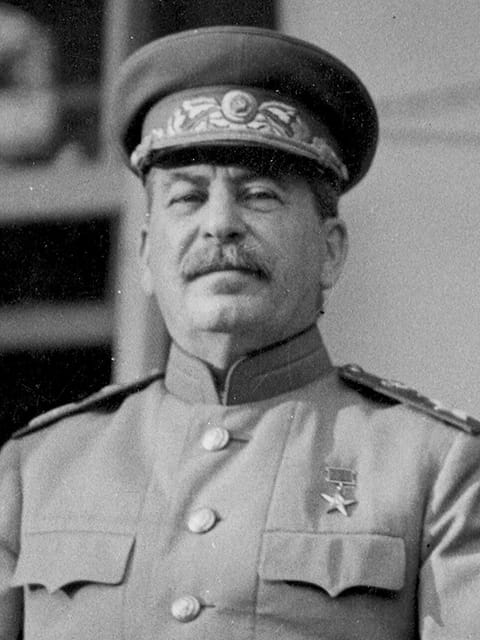anticipatory obedience

Anticipatory obedience is exactly what one would think, actions taken to obey what one perceives to be the wishes of a superior before being commanded to do so. The phrase is a relatively common in political science literature in reference to subjects’ compliance with the will of a totalitarian regime, but its origins are older and theological. The coinage of the term is often credited to Yale historian Timothy Snyder, but he did not originate it.
The term appears in an 1898 theological analysis of the New Testament letter to the Colossians by Handley Moule. He uses the term to refer to compliance with God’s will:
I touch it again only to point out how it suggests to us the intended intimacy and endearment of the relation of wish and will between the believer and the Lord. We are meant, in the light of this transfigured word, ἀρέσκεια, to think of His will as an affectionateI servant thinks of the wishes (not merely of the spoken or written-down orders) of the master, or the mistress, who has made the house of service a genuine home, and has almost hidden authority away in friendship. Even such an illustration scarcely satisfies the case. This “anticipatory obedience” is rather to be that of a devoted son to a parent, to a loving and beloved parent, to whom perhaps the son has not been always dutiful. How can he now do enough to undo that lamented past? How can he too much try, and delight, to obliterate the scars of past neglect by a present and studious and watchful “meeting of the wishes.”?
It appears in political discourse by 1975. Whether the political usage was influenced by the earlier theological one, or whether it is an independent coinage, is unknown. From a paper by New York University political scientist Kalman H. Silvert written for the U.S. Department of State on the governments of Latin American states:
Thus, on a rough set of guesses concerning degrees of national integration, cohesion, and citizenship, derived from economic statistics, urbanization, literacy, mobility patterns, cultural and racial homogeneity, extent and complexity and completeness of social services, and hunches concerning citizenry loyalty and anticipatory obedience to law, let us range the Latin countries on an approximate scale of national community.
Application of anticipatory obedience to authoritarian regimes dates to at least 1980, when Columbia University professor Seweryn Bialer applied to Stalin’s Soviet Union:
Participation in the rule of terror was not confined to its direct administrators, nor was it restricted to obeying direct commands from above. The members of the political bureaucracy were actively engaged, if not physically involved, in the terror; they were guilty en masse of initiating terroristic acts. They displayed what can be described as “preemptive obedience,” the anticipation of what they considered to be their bosses' wishes and whims. It was an anticipatory obedience encouraged by their superiors and characterized favorably as “vigilance.”
In October 2024, the phrase began to be applied in the context of a second Trump administration when the owner of the Los Angeles Times, Patrick Soon-Shiong, prevented his editorial staff from publishing an endorsement of Kamala Harris and Jeff Bezos, owner of the Washington Post, was considering deciding (and eventually did decide) to not endorse any candidate in the election. Both Soon-Shiong and Bezos had significant business interests that could be adversely affected should Trump fulfill his promise to wreak vengeance upon those who opposed his candidacy. An article in the Columbia Journalism Review by Ian Bassin and Maximillian Potter, both affiliated with the non-profit organization Protect Democracy, used the phrase:
This, it seems to us, is what Timothy Snyder, the Levin Professor of History at Yale University, calls “anticipatory obedience.” In his book On Tyranny, Snyder, who is also an adviser to our organization, writes: “Most of the power of authoritarianism is freely given. In times like these, individuals think ahead about what a more repressive government will want, and then offer themselves without being asked. A citizen who adapts in this way is teaching power what it can do.”
Other journalists picked up the phrase. For instance, NPR’s media correspondent David Folkenflik wrote on 24 October:
“Outlets from the Los Angeles Times to perhaps even the Washington Post are engaging in what the historian Timothy Snyder has called anticipatory obedience—pulling back from their obligation to tell the truth in order to placate the tyrant so he doesn't come after them,” Protect Democracy's Bassin says.
The backlash against the two newspapers was substantial; the Washington Post lost a quarter million subscribers, some ten percent of its subscriber base. Bassin and Potter’s quoting of Snyder also resulted in other reporters, such as Folkenflik, incorrectly implying that Snyder was the coiner of the phrase.
Sources:
Bassin, Ian and Maximillian Potter. “On Anticipatory Obedience and the Media.” Columbia Journalism Review, 8 October 2024.
Bialer, Seweryn. Stalin’s Successors: Leadership, Stability, and Change in the Soviet Union. Cambridge: Cambridge UP, 1980, 11. Archive.org.
Folkenflik, David. “Did the ‘L.A. Times’ and Other News Outlets Pull Punches to Appease Trump?” NPR: All Things Considered, 24 October 2024.
Moule, Handley C. G. Colossian and Philemon Studies. London: Pickering & Inglis, 1898, 60. HathiTrust Digital Archive.
Silvert, Kalman H. “The Changing Dynamics of Hemispheric Politics.” Selected Mid-Term Problems in U.S. Foreign Policy. Hanover, NH: Public Affairs Center Dartmouth College, 1975, 503–37 at 525. Archive.org.
Photo credit: US government photo, 1943, Wikimedia Commons, public domain photo